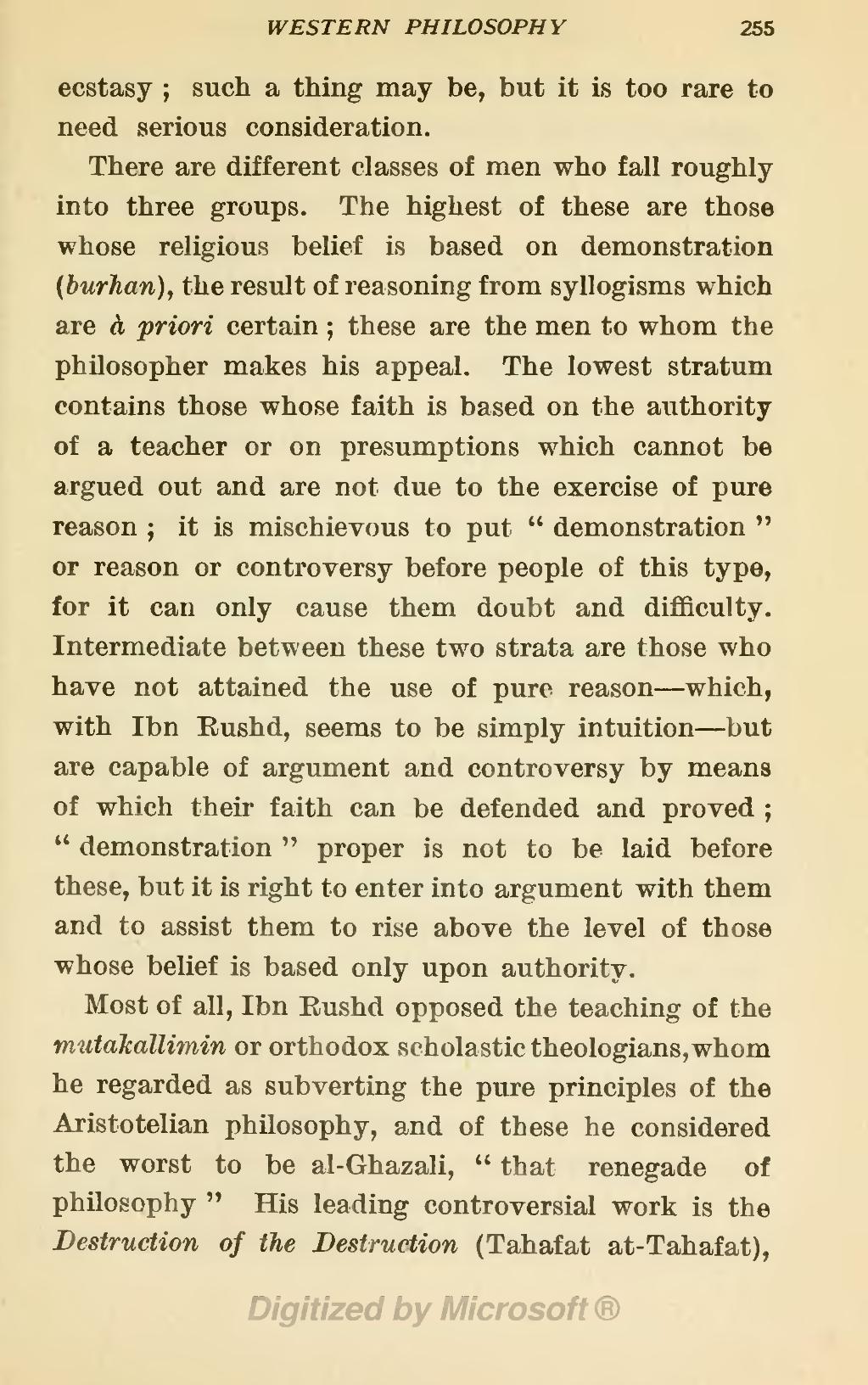ecstasy; such a thing may be, but it is too rare to need serious consideration.
There are different classes of men who fall roughly into three groups. The highest of these are those whose religious belief is based on demonstration (burhan), the result of reasoning from syllogisms which are à priori certain; these are the men to whom the philosopher makes his appeal. The lowest stratum contains those whose faith is based on the authority of a teacher or on presumptions which cannot be argued out and are not due to the exercise of pure reason; it is mischievous to put "demonstration" or reason or controversy before people of this type, for it can only cause them doubt and difficulty. Intermediate between these two strata are those who have not attained the use of pure reason—which, with Ibn Rushd, seems to be simply intuition—but are capable of argument and controversy by means of which their faith can be defended and proved; "demonstration" proper is not to be laid before these, but it is right to enter into argument with them and to assist them to rise above the level of those whose belief is based only upon authority.
Most of all, Ibn Rushd opposed the teaching of the mutakallimin or orthodox scholastic theologians, whom he regarded as subverting the pure principles of the Aristotelian philosophy, and of these he considered the worst to be al-Ghazali, "that renegade of philosophy" His leading controversial work is the Destruction of the Destruction (Tahafat at-Tahafat),
